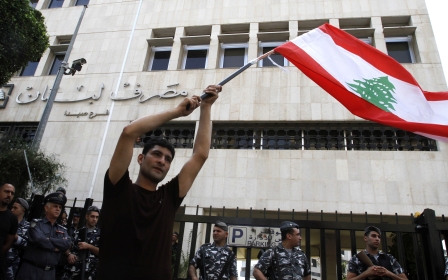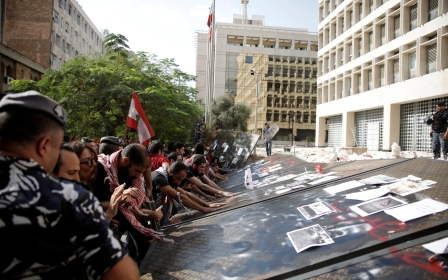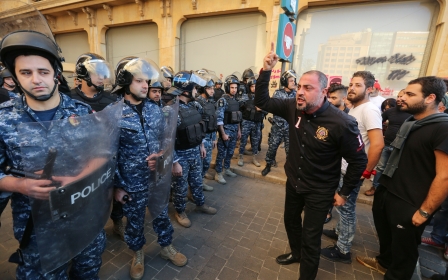Philippine government plans to repatriate 1,000 citizens from Lebanon

The Philippines is preparing to repatriate hundreds of citizens from Lebanon after its embassy in Beirut received an "overwhelming" number of requests amid widespread protests and an economic downturn in the country.
Filipino diplomats said on Thursday that the country would repatriate at least 1,000 Filipinos by February 2020, as anti-government protests continue to cripple Lebanon's economy.
In a statement published on its website, the Philippine embassy in Beirut said applications for free repatriations were "overwhelming", as Lebanon continues to suffer from "economic and financial woes".
"More than 1,000 Filipinos, mostly women with some children in town, arrived in droves to the Philippine embassy in Beirut to register for free mass repatriation in February next year," the embassy said.
'Workers face multiple layers of oppression because of the kafala system and lack of legal protections - especially because they are excluded from local labour laws'
- Farah Salka, Anti-Racist Movement
It said many of the requests came from "workers who have long overstayed or have recently lost jobs and income opportunities during these trying times in Lebanon".
Manila said it would provide free air tickets to Filipino workers wanting repatriation and planned to pay any penalties issued for clearance by Lebanese immigration authorities.
The Filipino government is the first to offer its citizens free repatriation from Lebanon following weeks of anti-government protests.
The country's economy has also plummeted, with people across Lebanon suffering from a shortage of dollars and facing restrictions on bank withdrawals, and a 40 percent slump of the pegged currency on parallel markets.
Foreign workers, many of whom have been promised wages in dollars, are either not receiving their salaries or face delays in getting their pay, local activists have said.
Farah Salka, an organiser with the Anti-Racist Movement group in Lebanon, said the economic downturn would hurt migrant workers the most.
"Workers, especially women, are already the most vulnerable within Lebanese society. They face multiple layers of oppression because of the kafala system and lack of legal protections - especially because they are excluded from local labour laws," Salka told Middle East Eye.
The kafala system regulates the work of migrant labourers in the country. For years, workers and their advocates have criticised it for being exploitative and leading to a range of human rights abuses.
"When these workers were employed, they were promised salaries in dollars, but instead they have either not been paid or offered salaries in the Lebanese lira as an alternative. But with the rates fluctuating on a nearly daily basis, it is not a sustainable source of income for these workers," said Salka.
Middle East Eye propose une couverture et une analyse indépendantes et incomparables du Moyen-Orient, de l’Afrique du Nord et d’autres régions du monde. Pour en savoir plus sur la reprise de ce contenu et les frais qui s’appliquent, veuillez remplir ce formulaire [en anglais]. Pour en savoir plus sur MEE, cliquez ici [en anglais].




